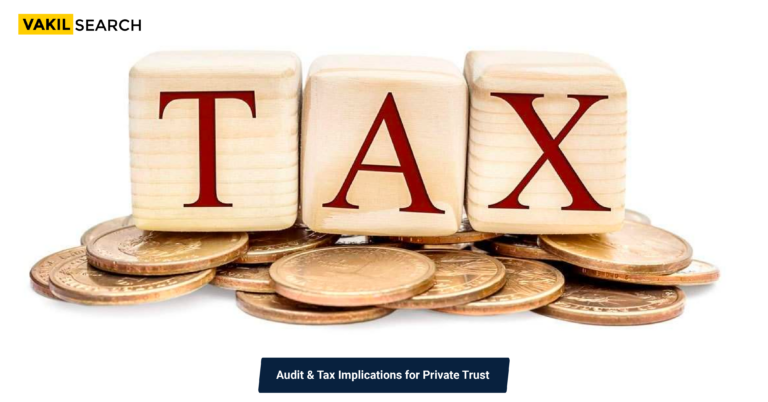Finance Acts of 2020 and 2021 will amend the Income Tax Act of 1961's registration, verification, and approval requirements for trusts and charities. Sections 12A, 12AA, and 12AB were intended to make taxation and claims easier. Trusts were required to switch from Section 12AA to Section 12AB on April 1, 2022. These trusts are public and private. Only public charities and religious trusts are included. The modified form has 21 points. Let's dig deeper.
Describe Form 10A
Forms like Form 10 and Form 10G were previously made useless and replaced with an improved Form 10A that had a total of 21 points. In essence, Form 10 fulfilled two functions: authorized trusts could use Form 10A of the Income Tax Act online for re-registration, while newly formed trusts could use Form 10A for temporary registrations for trusts or charitable organizations.
Applications for trusts seeking new registrations or approvals must be made 13 months before the subsequent assessment year. For instance, you will need to submit your application in March 2023 in order to find out if it has been approved or rejected in April 2024. A provisional registration will be given if the application is approved, but it will expire after three years. As a result, the trust must submit an application for permanent registration at least six months before the provisional registration period expires.
The approvals in the case of permanent registrations are valid for 5 years before re-registration is required. The application for registration renewal must be submitted six months before the prior permanent registration’s five-year period of validity expires.
What Modifications Are Made in Form 10A?
You must fill out all relevant information and data for previous registrations, the constitution, incorporation, significant participants, assets and liabilities, religious activities, and income in the six parts of Form 10A.
- You can fill out this form online, but you have to pick one part at a time and fill it out honestly
- You must save the data immediately after finishing each of the six sections in its entirety
- You must include the date of the institution or trust’s founding or registration when entering information in the constitution and incorporation section of the form
How and Where Do You Fill Out Form 10A?
The Income Tax Department has created a new portal where you may fill out Form 10A for the electronic filing of ITR forms and submission of relevant documents. You can enter the site directly to fill out Form 10A of the Income Tax Act without having to go through the trouble of physically filing for Section 12A at the Income Tax Department. The steps that outline the trip you might anticipate taking during your e-filing procedure are listed below.
Step 1: To access the Income Tax portal, go to www.incometax.gov.in.
Step 2: Select “e-File.”
Step 3: Choose “Income Tax Forms”
Step 4: Choose “File Income Tax Forms”
Step 5: Pick “Persons not dependent on any source of income” (the source of money is irrelevant)
Step 6: Under Tax Exemption and Relief Form 10A, select “File Now.”
Step 7: Complete the necessary information and submit the appropriate paperwork.
Step 8: From the selection, select the assessment year.
Step 9: To fill out the form, first click “Continue,” then click “Let’s Get Started.”
Step 10: Finish the form by adding a digital signature or an electronic verification code.
Documents Needed to File Form 10A of Income Tax
The materials that need to be submitted with Form 10A should be checked thoroughly. The exemption under Section 12A is granted basis for the documents submitted.
The following list of documents needs to be uploaded at the time of filing Form 10A:
- Self-certified copy of the instrument under which the Trust or organization is created
- Self-certified copy of the evidential document in case the Trust or organization is not established under the above-stated instrument.
- The self-certified copy of the registration with the Registrar of Companies or Firms and Societies or Registrar of Trusts
- Self-certified copy of documents in case of any changes or modifications made post-registration of such Trusts or Organisations
- Self-certified copies of annual reports of the trusts or organization. The annual reports should be at most 3/three years old from the year in which it is applied.
- Details of activities of the organization or trusts
- Self-certified copy of previous rejection order under Section 12A
- Self-certified copy of existing law wherein registration has been granted under Section 12A
- The information required on Form 10A
- informational basics Address, Name, and Pan Card Number of the Trusts or Organization
- Trust or institution kind, including whether it is religious, benevolent, or both.
- Contact information for the managing trustee in the event of trust, and for the director or chairman in the case of a society or an NGO, respectively.
- Name, address, Pan Card number, Aadhar card number, and details of the director or chairman for businesses, societies, or organizations.
- The reason for forming the trust or institute, such as to provide financial support for healthcare, education, or a religious cause.
The Format of the Form 10A Is as Below

How to File Form 10A Online?
The process of filing Form 10A is easy and straightforward. Do read the instruction carefully before filling up the form. The following are the steps for filing:
- Log on to the Income tax department E-filing income tax return
- On the upper-left side, choose the option Income Tax Forms
- Select Form 10A from the drop-down menu and also select the assessment year
- On the submission mode option, select Prepare and Submit the form
File Form 10A
The Income-tax Act grants various exemptions and deductions to individuals, organizations, and companies. The Income Tax Act 1961 allows charitable trusts, religious organizations, and non-profit NGOs who are registered under Section 12A to claim income tax exemption. It is attained by the Trust or charitable organization after its establishment. It means they need not pay income tax on the surplus income.
The trusts and societies and other Section 8 companies provide benefits to the general public. Hence to encourage more such charitable activities, the Income Tax has granted the exemption. This benefit of 12A is not applicable to a private trust.
The Benefit of Section 12A for The Trusts & Societies
- The fund or income that the Trust or NGOs have is called income application. Because the funds are used to pay for the Trust’s expenses.
- Hence the income received is exempted.
- The Trust can set aside up to 15% of revenue for charitable or religious purposes.
- Organizations and trusts registered under Section 12A are eligible to receive other Government and private grants.
- The registration granted under Section 12A will be active until it’s been canceled. Renewal of registration is also not needed.
Click Here: Trust Deed Registration
Conclusion
Upon receiving the Form 10A application, the Commissioner will review the supporting documentation. He will request extra paperwork if necessary. The organization or Trust may not be registered under Section 12A only by submitting Form 10A. Once the Commissioner is pleased with the application and the supporting documentation, approval will be given. The organization or Trust will be exempt from income tax under Section 12A after obtaining the approval. Still, looking for the right person/expert to handle your legal matters? You can rely on Vakilsearch the leading legal firm in India for all your legal needs.
Read more,













